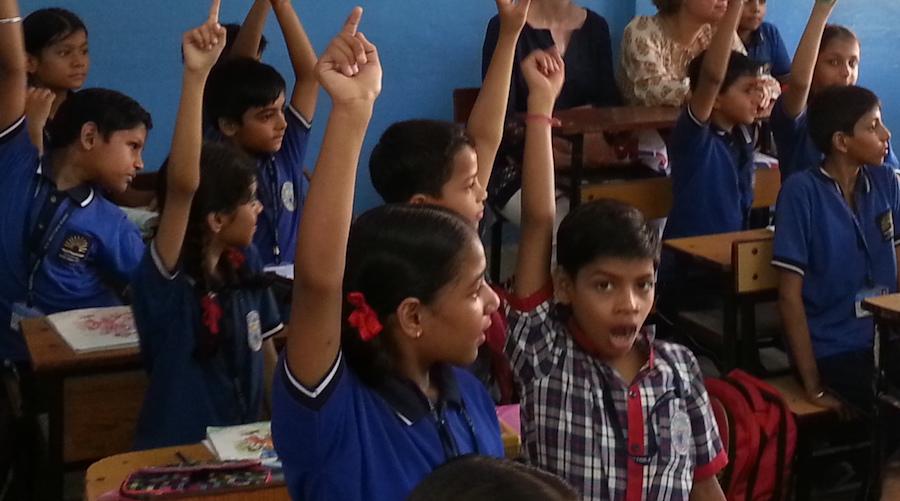
Submitted by Administrator on Mon, 23/05/2016 - 15:47
Researchers at the University of Cambridge are to explore how India can provide a high-quality multilingual education system to primary school pupils.
The importance of improving learning outcomes in primary school education has been in focus in India following the Right to Education Act (RTE) in 1 April 2010. One of the primary aims of the education policy is to provide useful and elementary education for all children in the 6-14 age group.
An Economic and Social Research Council and Department for International Development-funded study led by Professor Ianthi Tsimpli will measure 1,600 children’s language, literacy and numeracy skills over a two year period in the urban slums in Delhi and Hyderabad. It will also look at remote rural areas of the state of Bihar, where almost all children are now enrolled in the state school infrastructure, following a 10% increase since 2006.
The team, from both the UK and India, will focus on assessing a range of factors affecting educational quality in India including language inequalities (such as the availability of mother-tongue support in school), teaching practices and their effect on the development of critical thinking and problem solving abilities, and on structural and social factors.
Professor Tsimpli, from the Department of Theoretical and Applied Linguistics at Cambridge, said: “Bilingualism and multilingualism have been shown to enhance learning skills in children raised in western societies but Indian children do not always benefit from the same advantages, for reasons that urgently need to be investigated.
“This research will explore how the complex social, economic and geographical issues affect the delivery of quality multilingual education in India, whilst it will also provide valuable insights of relevance to the education of bilingual children in the UK.”
Multilingualism and Multiliteracy: Raising learning outcomes in challenging contexts in primary schools across India builds on Professor Tsimpli’s large scale THALES bilingualism project which assessed the language and cognitive abilities of over 700 children in five different countries, as well as Professor Theo Marinis’ ESRC and NWO (Dutch Research Council) projects investigating language development in bilingual children across three different countries and Professor Jeanine Treffers-Daller’s research on language dominance. The present project includes research on numeracy and maths anxiety with Dr Dénes Szücs, Department of Psychology, Cambridge.
Co-Investigators (India)
Prof. Suvarna Alladi (NIMHANS – National Institute for Mental Health and Neurosciences- University in Bengaluru),
Prof Lina Mukhopadhyay (EFLU- English and Foreign Languages University, Hyderabad)
Co-Investigators (UK)
Professor Theo Marinis, (Psychology and Clinical Language Sciences, University of Reading)
Dr Dénes Szücs, (Psychology, University of Cambridge)
Professor Jeanine Treffers-Daller (Institute of Education, University of Reading)
Project Partners in India
The British Council India. (http://www.britishcouncil.in/).
The Language and Learning Foundation (http://www.languageandlearning.in/)
The Tribhuvan School in Patna (Bihar) (http://thetribhuvanschool.com/index.php)
The Digantar school in Todi (rural area, Rajasthan; visited by Tsimpli & Treffers-Daller in
September 2014).
The Little Angels school in Kothur (rural area, Mahabubnagar district, south of Hyderabad; visited by Tsimpli & Treffers-Daller in September 2014).
Project Partners in the UK
Bilingualism Matters@Reading
The Communication Trust (https://www.thecommunicationtrust.org.uk/)
Reading Quest (http://www.readingquest.org.uk/)
